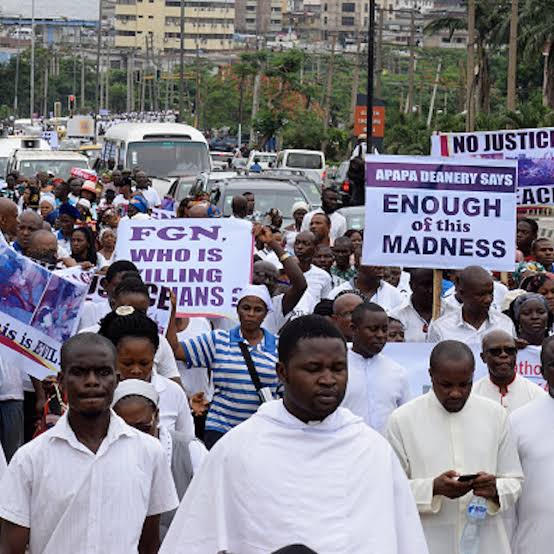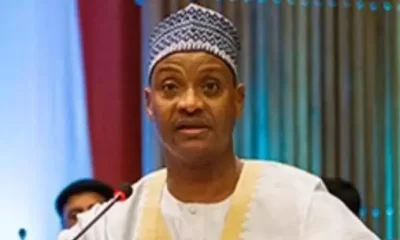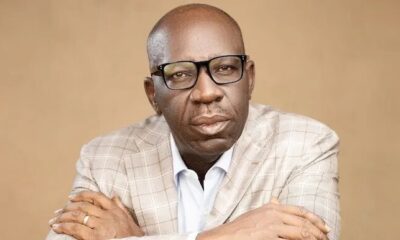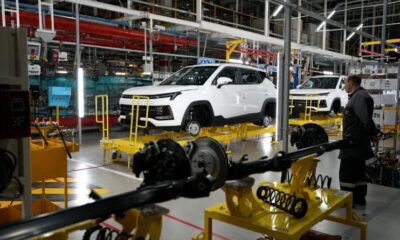Democracy & Governance
Restructuring And Federalism: The Heart Of Nigeria’s Development -By Aina Ademola
A restructured Nigeria means, the citizens through their representatives in the state house are responsible for their happiness and woes, their success and failures, their development or retrogression, it means the people know who to hold accountable. Nigeria cannot be a giant of Africa without getting her internal political concerns right.

At the Kaduna Economic and Investment Summit (KadInvest 7.0) themed ‘Building a Resilient Economy’ held in Kaduna from 13th- 15th October 2023, the keynote speaker; the Former Emir of Kano and former Governor of the Central Bank of Nigeria (CBN), Sanusi Lamido Sanusi, stated: “More generally, I think states need to free themselves from Federal Dominance, build your own power supply, attract your own investors, educate your children and create your own jobs”.
It is no doubt that the grotesque political and economic condition that the Nigerian people have found themselves in today arose from the usurpation of political powers from the State governments and the betrayal of the principles of a democratic federal system by military regimes at the height of military rule until the fourth republic in 1999. Ostensibly, Nigeria is supposed to be a federal system like the United sates of America but the reality remains that Nigeria is a central oligarchical system that came into prominence by weakening the state government and submitting to the center a carte blanche of political power almost without checks, thereby making the state government dependent on the federal government for their sovereignty. The ethnic uprisings in the East and the South West, the material impoverishment of the South- South, the escalated insecurity in the North, especially the North East are results of the failure of the Nigerian government to restructure the country and set it on a path of an egalitarian democratic federal system governed by the people. Despite being an heterogenous country that inhabits over 250 ethnic groups, Nigeria still lacks a federal system. This means that, the political, economic and security reality of these ethnic groups are represented at the center instead of the state level, making governance very cumbersome. While the FG takes over 50% allocation for itself, the state government still depends on about 25 percent allocation from the federal government to build basic infrastructures like hospitals, schools etc making it very difficult to discharge their social responsibilities. Considering the declining revenue of the Federal government, an overwhelming majority of the state governments are on life support and are unable to confidently finance their expenditures without allocations from the federal government. The same thing is true about security.
As the commander in chief of the armed forces, The federal government under the leadership of the president only, has the power to discharge and appoint security agencies like the Police Force, the Army thereby denying the state government from directly participating in their own security. The Amotekun Security outfit in Ondo State in south west Nigeria is a testament to this fact. The incessant murder of citizens of Ondo State by bandits and unknown gunmen, and the federal government domination of security agencies created a lot of bureaucracy and bottlenecks in the fight against insecurity in Ondo State, thereby leading the State Governor Rotimi Akeredolu to create Amotekun; a security agency controlled by the state governor and independent of the Federal government, the same thing is true in Benue State with the creation of the Benue Volunteer Guards (BVGs) by Governor Samuel Ortom to combat insecurity in the state. It has become apparent that the current Nigerian political structure is no longer viable and needs to be restructured.
An overwhelming part of the Nigerian constitution was written by military governments who lack political mandates and were inexperienced in democratic processes. . As in Senegal on 20th March 2016, a referendum was held by the government, it was the fourth constitutional referendum in Senegalese history. The referendum was initiated by president MackySall; It proposed constitutional reform and about 62% of the citizenry voted in favor, bringing to life a newly amended constitution decided by the people. Nigeria therefore can key into this. through a Constitutional reform and referendum, thus opening a path to restructuring and true federalism is the solution to Nigeria’s socio economic and political problems. Democracy emphasizes on the collective participation of the citizens in political concerns, therefore, the instruments of government must be as close to the people as possible and this can only happen when the responsibilities of the state governments, appropriated by the federal government are devolved, making the state autonomous and responsible for their own political and economic outlook. A central system of government in an heterogenous country like Nigeria creates a barrier between the people and the instrument of government. Nigeria can also draw inspiration from the American political structure, which through the provision of the tenth amendment of the American constitution, grants state sovereignty, which allows the state government control their own economy, politics and security with little or no interruption from Washington, DC only on unique occasions as provided by the supremacy clause as provided by article VI, paragraph 2 of the United States constitution. Restructuring and federalism should be the top on the agenda of the 2023 presidential aspirants because without a restructured Nigeria, political and economic policies will not fly regardless of how beautiful they look in paper.
A restructured Nigeria means, the citizens through their representatives in the state house are responsible for their happiness and woes, their success and failures, their development or retrogression, it means the people know who to hold accountable. Nigeria cannot be a giant of Africa without getting her internal political concerns right.



















